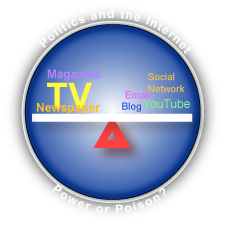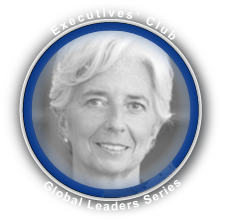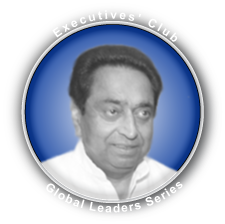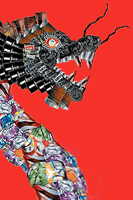Conventional Wisdom Scuttled—Disruption Preview—Business in the Batter’s Box
 Barack Obama’s presidential campaign was more than a major social media milestone because it ushered in a new relationship model among leaders and their supporters. Due to social media, an unprecedented number of individuals had a new kind of active, direct role in Obama’s campaign; moreover, I predict that the Obama campaign and imminent administration will change citizens’ and consumers’ expectations of “leader” and “follower” roles in government and business. Amazon.com changed consumers’ expectations about retail in general—information on demand, reviews, unbelievable variety at low prices—and a significant portion of Obama supporters will want to continue their support to “make the change happen.” These supporters will bring their changed expectations of action and collaboration to their vendors. That means your company. Barack Obama’s presidential campaign was more than a major social media milestone because it ushered in a new relationship model among leaders and their supporters. Due to social media, an unprecedented number of individuals had a new kind of active, direct role in Obama’s campaign; moreover, I predict that the Obama campaign and imminent administration will change citizens’ and consumers’ expectations of “leader” and “follower” roles in government and business. Amazon.com changed consumers’ expectations about retail in general—information on demand, reviews, unbelievable variety at low prices—and a significant portion of Obama supporters will want to continue their support to “make the change happen.” These supporters will bring their changed expectations of action and collaboration to their vendors. That means your company.
The Obama campaign is very instructive to business leaders because business customers are changing expectations of their leaders, as we’ll discuss in more detail below. As the Global Human Capital Journal is not primarily focused on politics, I am less interested in the fact that Obama was elected than how he was elected. Moreover, […]
Collaborating with Customers to Achieve Corporate Strategy—How Small Steps Can Lead to Large Impact
 Healthcare systems worldwide are criticized for falling short of expectations, and countries like the U.S. which feature aging populations, are rapidly approaching a crisis. Demand and cost will grow, but the system as currently structured will certainly break down unless radical changes are made. Web 2.0’s disruptive potential can be part of the remedy: we need to introduce much more accountability and collaboration into all parts of the system. We need to change the paternalistic attitudes that pervade the system, treat patients as active participants and encourage everyone to be more accountable. This series introduces healthcare Web 2.0 innovators. Healthcare systems worldwide are criticized for falling short of expectations, and countries like the U.S. which feature aging populations, are rapidly approaching a crisis. Demand and cost will grow, but the system as currently structured will certainly break down unless radical changes are made. Web 2.0’s disruptive potential can be part of the remedy: we need to introduce much more accountability and collaboration into all parts of the system. We need to change the paternalistic attitudes that pervade the system, treat patients as active participants and encourage everyone to be more accountable. This series introduces healthcare Web 2.0 innovators.
CDC Business Drivers
CDC’s charter is to protect public health. The agency serves as a resource to mitigate the impact of infectious diseases, environmental health, bioterrorism and others. It fulfils its mission by connecting with people and educating the public; it seeks to partner with people to increase their knowledge of health hazards and how to respond appropriately in the face of threats.
[…]
French Finance Minister Declares French rEvolution in Economic Policy is a real-time case study with lessons for G7 Knowledge Economy transition—”Courage” to the rats—A new French realism?
 Illinois leaders were addressed by Her Excellency Christine Lagarde, Economy, Industry and Employment Minister, Republic of France at the special luncheon held in her honor by the Executives’ Club of Chicago at the Westin on 23 May 2008. Attending were Chicago Mayor Richard M. and Maggie Daley, a French delegation that included the Ambassador of France to the U.S. Pierre Vimont, the Head of Cabinet Christian Dufour, David Appia, Minister Counselor for Economic and Commercial Affairs, and numerous executives of Chicago Fortune 500 firms. Illinois leaders were addressed by Her Excellency Christine Lagarde, Economy, Industry and Employment Minister, Republic of France at the special luncheon held in her honor by the Executives’ Club of Chicago at the Westin on 23 May 2008. Attending were Chicago Mayor Richard M. and Maggie Daley, a French delegation that included the Ambassador of France to the U.S. Pierre Vimont, the Head of Cabinet Christian Dufour, David Appia, Minister Counselor for Economic and Commercial Affairs, and numerous executives of Chicago Fortune 500 firms.
If one were not listening attentively and willing to question stereotypes, it would have been too easy miss this intriguing story. However, as in all things “2.0,” profound change manifests slowly at first, and I detected a glimmer of disruption in France’s status quo. Having lived in West Berlin surrounded by the concrete reality of a wall that subsequently, unbelievably, came down, I ask myself, “What if France were […]
India Trade Minister Draws Chicago-India Parallels at Executives’ Club offers coverage of Shri Kamal Nath’s Chicago presentation. Key themes: new global economic architecture presages economic realignment and thinking beyond the obvious to tap emerging opportunities.
 Illinois leaders were addressed by His Excellency Shri Kamal Nath, Minister of Commerce and Industry, Republic of India. True to form, His Excellency struck chords of transformation, partnership, common interests and harmony at the lunch held in his honor at the University Club on 19 February 2008. Attending were Chicago Mayor Richard M. Daley, Mr. Rajinder Bedi, Managing Director of the Illinois Office of Trade and Investment, The Honorable Susan Schwab, U.S. Trade Representative, Craig S. Donohue, Chief Executive Officer, CME Group and John Estey, President & Chief Executive Officer, SC Electric Company. Illinois leaders were addressed by His Excellency Shri Kamal Nath, Minister of Commerce and Industry, Republic of India. True to form, His Excellency struck chords of transformation, partnership, common interests and harmony at the lunch held in his honor at the University Club on 19 February 2008. Attending were Chicago Mayor Richard M. Daley, Mr. Rajinder Bedi, Managing Director of the Illinois Office of Trade and Investment, The Honorable Susan Schwab, U.S. Trade Representative, Craig S. Donohue, Chief Executive Officer, CME Group and John Estey, President & Chief Executive Officer, SC Electric Company.
Reading between the lines, the U.S. and India stand at a significant turning point: India’s impressive economic growth is a significant element of the ongoing redistribution of global economic power—which holds excellent opportunities for U.S. businesses and workers that are looking for it.
[…]
Web 2.0 Impact on 2008 U.S. Presidential Election Declared Minimal at Executives’ Club, but cantankerous subtext hints at possible monkey wrench—democratic race in spotlight.
 The Executives’ Club of Chicago fielded an expert panel to brief Midwest executives on Web 2.0’s current and likely impact on one of the most watched U.S. elections in recent history. Marie Cocco, a renowned political columnist, Peter Greenburger, Director of Google’s Elections & Issue Advocacy Team, and Alan Webber, Senior Analyst of Forrester Research brought to bear diverse perspectives on the question at the event, which took place at The University Club on January 31, 2008. The Executives’ Club of Chicago fielded an expert panel to brief Midwest executives on Web 2.0’s current and likely impact on one of the most watched U.S. elections in recent history. Marie Cocco, a renowned political columnist, Peter Greenburger, Director of Google’s Elections & Issue Advocacy Team, and Alan Webber, Senior Analyst of Forrester Research brought to bear diverse perspectives on the question at the event, which took place at The University Club on January 31, 2008.
They produced a logical conclusion, namely that Web 2.0 was a force in the making but that it would probably not be a decisive factor this year. The session was graciously co-hosted by Communications Committee Co-Chairs David Prosperi, Vice President Global Public Relations, AON and David Blake, Publisher of Crain’s Chicago Business.
As usual, I will share my notes of speakers’ remarks before adding my between the lines analysis and conclusions. As an […]
Will China’s Rise Lead to an Environmental Catastrophe? summarizes The Economist Chicago debate, examining the environmental fallout of the Chinese economic supernova—sibling rivalry rears its ugly head.
 In 2007, nary an RSS feed or the page of a newspaper (for those still inclined ,^) does not mention China’s exploding impact on the global stage: China is truly an economic supernova, and it is breaking almost any record for development that is laid before it. However, China’s breakneck development is accompanied by grave environmental fallout: for example, as the host of the Beijing 2008 Olympic Games, the city is designing extreme measures to ensure that the air is clean enough for the athletes to breathe. The chief culprit is coal, a key source for China’s insatiable need for electric power, and a resource that the country has in abundance. For key facts on China, I suggest The Economist’s Country Briefing or CSRA’s Emerging Markets category (in depth) or China tag (mentions). In 2007, nary an RSS feed or the page of a newspaper (for those still inclined ,^) does not mention China’s exploding impact on the global stage: China is truly an economic supernova, and it is breaking almost any record for development that is laid before it. However, China’s breakneck development is accompanied by grave environmental fallout: for example, as the host of the Beijing 2008 Olympic Games, the city is designing extreme measures to ensure that the air is clean enough for the athletes to breathe. The chief culprit is coal, a key source for China’s insatiable need for electric power, and a resource that the country has in abundance. For key facts on China, I suggest The Economist’s Country Briefing or CSRA’s Emerging Markets category (in depth) or China tag (mentions).
The Economist and WBEZ 91.5 FM presented an Oxford-style debate on the effect that China’s rise […]
The TransAtlantic Partnership’s Implications for U.S., E.U. Economies summarizes coverage of the EEC International Conference—Talking with the Ambassadors of the World’s Largest Trading Relationship and the CEOs of Four Global Enterprises.
 Three eminent diplomatic leaders and CEOs from Baxter, Financial Dynamics, ITW and Philips briefed Midwest executives on the current status and future directions of the world’s largest trading relationship at the Executives’ Club of Chicago’s International Conference November 15. The half-day program featured several presentations, a CEO panel and a media round table. All speakers sought to impress upon the audience the pivotal importance of the transatlantic alliance for the United States and Europe, and most warned chief executives neither to take it for granted nor to be passive in the face of rising protectionism. Three eminent diplomatic leaders and CEOs from Baxter, Financial Dynamics, ITW and Philips briefed Midwest executives on the current status and future directions of the world’s largest trading relationship at the Executives’ Club of Chicago’s International Conference November 15. The half-day program featured several presentations, a CEO panel and a media round table. All speakers sought to impress upon the audience the pivotal importance of the transatlantic alliance for the United States and Europe, and most warned chief executives neither to take it for granted nor to be passive in the face of rising protectionism.
The fact that the importance of the E.U.—U.S. alliance had to be emphasized brought into sharp relief the relatively sudden rise of Asia as well as the shift from the Industrial Economy to the Knowledge Economy. Both megatrends pose opportunities and threats for the world’s largest economies and enterprises, and […]
|
|
 Barack Obama’s presidential campaign was more than a major social media milestone because it ushered in a new relationship model among leaders and their supporters. Due to social media, an unprecedented number of individuals had a new kind of active, direct role in Obama’s campaign; moreover, I predict that the Obama campaign and imminent administration will change citizens’ and consumers’ expectations of “leader” and “follower” roles in government and business. Amazon.com changed consumers’ expectations about retail in general—information on demand, reviews, unbelievable variety at low prices—and a significant portion of Obama supporters will want to continue their support to “make the change happen.” These supporters will bring their changed expectations of action and collaboration to their vendors. That means your company.
Barack Obama’s presidential campaign was more than a major social media milestone because it ushered in a new relationship model among leaders and their supporters. Due to social media, an unprecedented number of individuals had a new kind of active, direct role in Obama’s campaign; moreover, I predict that the Obama campaign and imminent administration will change citizens’ and consumers’ expectations of “leader” and “follower” roles in government and business. Amazon.com changed consumers’ expectations about retail in general—information on demand, reviews, unbelievable variety at low prices—and a significant portion of Obama supporters will want to continue their support to “make the change happen.” These supporters will bring their changed expectations of action and collaboration to their vendors. That means your company.
 Healthcare systems worldwide are criticized for falling short of expectations, and countries like the U.S. which feature aging populations, are rapidly approaching a crisis. Demand and cost will grow, but the system as currently structured will certainly break down unless radical changes are made. Web 2.0’s disruptive potential can be part of the remedy: we need to introduce much more accountability and collaboration into all parts of the system. We need to change the paternalistic attitudes that pervade the system, treat patients as active participants and encourage everyone to be more accountable. This series introduces healthcare Web 2.0 innovators.
Healthcare systems worldwide are criticized for falling short of expectations, and countries like the U.S. which feature aging populations, are rapidly approaching a crisis. Demand and cost will grow, but the system as currently structured will certainly break down unless radical changes are made. Web 2.0’s disruptive potential can be part of the remedy: we need to introduce much more accountability and collaboration into all parts of the system. We need to change the paternalistic attitudes that pervade the system, treat patients as active participants and encourage everyone to be more accountable. This series introduces healthcare Web 2.0 innovators. Illinois leaders were addressed by Her Excellency Christine Lagarde, Economy, Industry and Employment Minister, Republic of France at the special luncheon held in her honor by the Executives’ Club of Chicago at the Westin on 23 May 2008. Attending were Chicago Mayor Richard M. and Maggie Daley, a French delegation that included the Ambassador of France to the U.S. Pierre Vimont, the Head of Cabinet Christian Dufour, David Appia, Minister Counselor for Economic and Commercial Affairs, and numerous executives of Chicago Fortune 500 firms.
Illinois leaders were addressed by Her Excellency Christine Lagarde, Economy, Industry and Employment Minister, Republic of France at the special luncheon held in her honor by the Executives’ Club of Chicago at the Westin on 23 May 2008. Attending were Chicago Mayor Richard M. and Maggie Daley, a French delegation that included the Ambassador of France to the U.S. Pierre Vimont, the Head of Cabinet Christian Dufour, David Appia, Minister Counselor for Economic and Commercial Affairs, and numerous executives of Chicago Fortune 500 firms. Illinois leaders were addressed by His Excellency Shri Kamal Nath, Minister of Commerce and Industry, Republic of India. True to form, His Excellency struck chords of transformation, partnership, common interests and harmony at the lunch held in his honor at the University Club on 19 February 2008. Attending were Chicago Mayor Richard M. Daley, Mr. Rajinder Bedi, Managing Director of the Illinois Office of Trade and Investment, The Honorable Susan Schwab, U.S. Trade Representative, Craig S. Donohue, Chief Executive Officer, CME Group and John Estey, President & Chief Executive Officer, SC Electric Company.
Illinois leaders were addressed by His Excellency Shri Kamal Nath, Minister of Commerce and Industry, Republic of India. True to form, His Excellency struck chords of transformation, partnership, common interests and harmony at the lunch held in his honor at the University Club on 19 February 2008. Attending were Chicago Mayor Richard M. Daley, Mr. Rajinder Bedi, Managing Director of the Illinois Office of Trade and Investment, The Honorable Susan Schwab, U.S. Trade Representative, Craig S. Donohue, Chief Executive Officer, CME Group and John Estey, President & Chief Executive Officer, SC Electric Company. In 2007, nary an RSS feed or the page of a newspaper (for those still inclined ,^) does not mention China’s exploding impact on the global stage: China is truly an economic supernova, and it is breaking almost any record for development that is laid before it. However, China’s breakneck development is accompanied by grave environmental fallout: for example, as the host of the Beijing 2008 Olympic Games, the city is designing extreme measures to ensure that the air is clean enough for the athletes to breathe. The chief culprit is coal, a key source for China’s insatiable need for electric power, and a resource that the country has in abundance. For key facts on China, I suggest The Economist’s Country Briefing or CSRA’s Emerging Markets category (in depth) or China tag (mentions).
In 2007, nary an RSS feed or the page of a newspaper (for those still inclined ,^) does not mention China’s exploding impact on the global stage: China is truly an economic supernova, and it is breaking almost any record for development that is laid before it. However, China’s breakneck development is accompanied by grave environmental fallout: for example, as the host of the Beijing 2008 Olympic Games, the city is designing extreme measures to ensure that the air is clean enough for the athletes to breathe. The chief culprit is coal, a key source for China’s insatiable need for electric power, and a resource that the country has in abundance. For key facts on China, I suggest The Economist’s Country Briefing or CSRA’s Emerging Markets category (in depth) or China tag (mentions). Three eminent diplomatic leaders and CEOs from Baxter, Financial Dynamics, ITW and Philips briefed Midwest executives on the current status and future directions of the world’s largest trading relationship at the Executives’ Club of Chicago’s International Conference November 15. The half-day program featured several presentations, a CEO panel and a media round table. All speakers sought to impress upon the audience the pivotal importance of the transatlantic alliance for the United States and Europe, and most warned chief executives neither to take it for granted nor to be passive in the face of rising protectionism.
Three eminent diplomatic leaders and CEOs from Baxter, Financial Dynamics, ITW and Philips briefed Midwest executives on the current status and future directions of the world’s largest trading relationship at the Executives’ Club of Chicago’s International Conference November 15. The half-day program featured several presentations, a CEO panel and a media round table. All speakers sought to impress upon the audience the pivotal importance of the transatlantic alliance for the United States and Europe, and most warned chief executives neither to take it for granted nor to be passive in the face of rising protectionism.